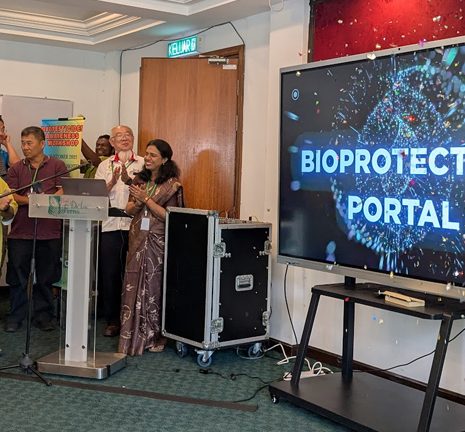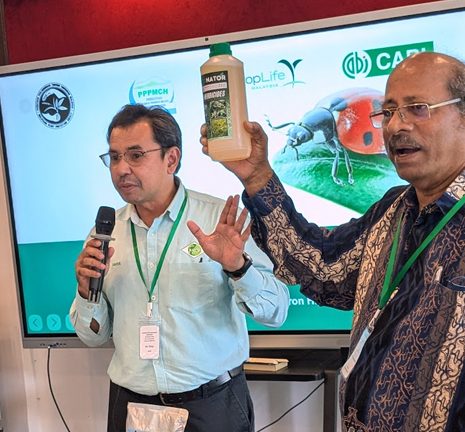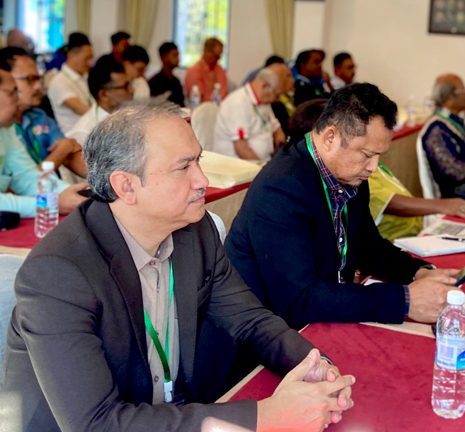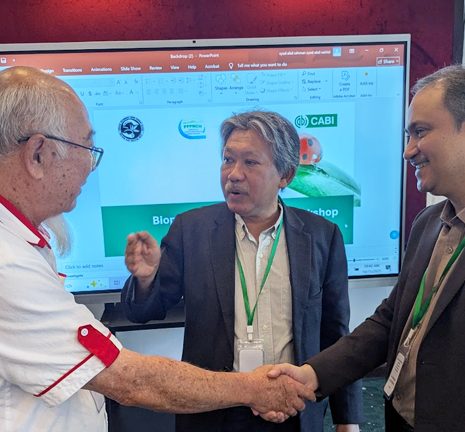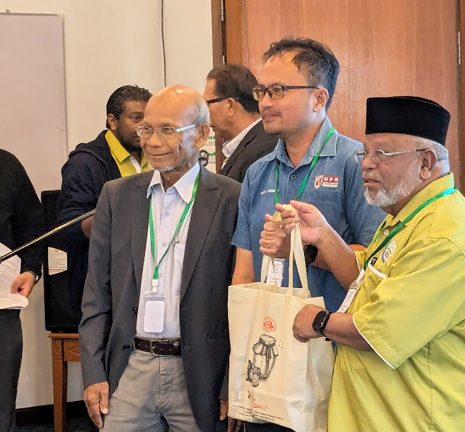`
A workshop to increase awareness on biopesticides was held on October 15 in Tanah Rata, Cameron Highlands, jointly organized by the MAPPS-Education Trust Fund, CABI, Cameron Highlands Farmer Associations, and Malaysian Croplife and Public Health Association.
“Conventional chemicals have long been used for crop protection but often come with environmental and health concerns”, said Mr. Chay Ee Mong, Secretary of Cameron Highlands Vegetable Growers Association.
Biopesticides provide safer and greener crop solutions that can help preserve nature while increasing profitability and sustainability. However, their use in Malaysia is limited due to the lack of knowledge and awareness among farmers.

“This workshop comes at an important time for Malaysia as we strive towards sustainable agriculture,” said Ms. Sing Yun Chin, Country Director for CABI Malaysia, during her welcome remarks.
By bringing together farmers, extension workers, associations, pesticide companies, government agencies, and policy makers, this workshop aims to bridge the knowledge gap and build confidence in biopesticides.
CABI BioProtection Portal
During the same workshop, Dr. Malvika Chaudhary, CABI’s Global Team Leader for Digital Product Usage, introduced the CABI BioProtection Portal and its functions.
The portal is the largest, free global resource for biological pest management. Its mission is to raise awareness and encourage the adoption of bioprotection among growers and advisors. The International Tropical Fruits Network (TFNet) recently joined the CABI BioProtection Portal as an associate.
Dr. Chaudhary demonstrated the features of the portal, which has a comprehensive database of registered biopesticides that are searchable by country, crop, and pest.
Downloadable resources such as guides are also available for growers and advisors to effectively incorporate sustainable natural products into their integrated pest management programs. For advisors such as extension workers, short digital courses on biopesticides are also available through the portal.

She urged biopesticide companies to partner with CABI and provide more detailed information about their products, labels, materials, data sheets, and fact sheets to benefit the farmers motivating them to use the products in right manner.
At the end of the presentation, the CABI BioProtection Portal was officially introduced tofarmer associations in Cameron Highlands.
Panel Discussion
To wrap up the workshop, a panel discussion on increasing the use of biopesticides in Malaysian agriculture was moderated by Datuk Dr. Mohammad Roff, former Expert Member of the TFNet Board of Trustees.

Mr. Mohammad Narzul Fahmi from the Department of Agriculture stresses the importance of information dissemination and extension work. He adds that through support of agencies and organizations, success stories can serve as models that will inspire other farmers to adopt biopesticide use.
Dr. Chaudhary provided examples on how farmer hubs created success stories in Bangladesh. Through partners of CABI the portal is being used in 790 farmer hubs in the country, helping increase awareness on biocontrol measures. To support the uptake of biocontrol practices CABI through its flagship program is undertaking necessary capacity building of extension officers to diagnose pests and diseases at early stage. This will facilitate use of biocontrol agents and biopesticides which are most effective when applied in timely manner. CABI is also working to build capacity of stakeholders to produce biocontrol agents at community level. Such examples are Trichogramma Rearing Facilities and linking cottage industries producing biofungicides to Plant Clinics as market driven model.
For Malaysia, Dr. A. Sivapragasam from CABI encouraged extension workers to build a community with farmers. He adds the importance of conversing using the same language to avoid miscommunication and build personal relationships. He added the importance of adjusting communication styles for different stakeholders.


